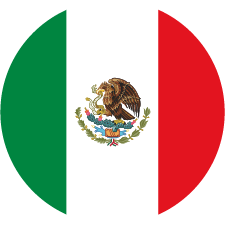4 Ways To Grow A Successful Business (And Do Good In The World)

Torani has more than its delicious coffee house flavors to thank for its mind-blowing success.
The secret?
Conscious capitalism.
The San Francisco-based syrup company has grown at a double-digit rate each year for more than 2 decades, with a compound annual growth rate of more than 20%. Torani has thrived during economic downturns, a factory relocation during a pandemic, and national struggles with employee retention.
And it’s never laid off a single employee.
During a recent Growth Institute webinar, Torani CEO Melanie Dulbecco shared the story of how her company’s commitment to conscious capitalism is strengthening corporate culture and driving financial success.
But what is conscious capitalism? To answer that question, the webinar also featured Timothy Henry, co-founder of Conscious Capitalism Inc. Timothy is a co-author of Conscious Capitalism Field Guide: Tools for Transforming Your Organization.
What we learned from Timothy and Melanie is that conscious capitalism is driving businesses to be a force for good. It’s also boosting business’ bottom lines.
Timothy shared the 4 core elements of a company that practices conscious capitalism:
The secret?
Conscious capitalism.
The San Francisco-based syrup company has grown at a double-digit rate each year for more than 2 decades, with a compound annual growth rate of more than 20%. Torani has thrived during economic downturns, a factory relocation during a pandemic, and national struggles with employee retention.
And it’s never laid off a single employee.
During a recent Growth Institute webinar, Torani CEO Melanie Dulbecco shared the story of how her company’s commitment to conscious capitalism is strengthening corporate culture and driving financial success.
But what is conscious capitalism? To answer that question, the webinar also featured Timothy Henry, co-founder of Conscious Capitalism Inc. Timothy is a co-author of Conscious Capitalism Field Guide: Tools for Transforming Your Organization.
What we learned from Timothy and Melanie is that conscious capitalism is driving businesses to be a force for good. It’s also boosting business’ bottom lines.
Timothy shared the 4 core elements of a company that practices conscious capitalism:
- Why? It’s purpose-driven.
- What? Its stakeholder orientation puts employees and customers first.
- How? It fosters a caring culture.
- Who? It has conscious leadership.
Let’s explore these elements of conscious capitalism—and how Torani and other companies are putting them into practice to scale up, even in tough times.
The Origin of Conscious Capitalism
Here’s a quick look at how conscious capitalism came to be. In 2008 Timothy Henry and other thought leaders met to consider the future of capitalism.
At the time, that future didn’t look great. A global financial crisis was raging. Public confidence in businesses was cratering. Timothy and his counterparts determined that the brightest future for business lay in conscious capitalism.
This socially and ethically responsible approach to corporate conduct aims to restore trust in capitalism.
It’s financially prudent as well.
The book Firms of Endearment: How World-Class Companies Profit From Passion And Purpose spotlights companies that follow the tenets of conscious capitalism. While companies in the S&P 500 overall saw their cumulative returns increase by an impressive 269% between 1997 and 2017, the organizations featured in the book did even better.
The conscious capitalism-following companies’ returns increased by 2,077%.
At the time, that future didn’t look great. A global financial crisis was raging. Public confidence in businesses was cratering. Timothy and his counterparts determined that the brightest future for business lay in conscious capitalism.
This socially and ethically responsible approach to corporate conduct aims to restore trust in capitalism.
It’s financially prudent as well.
The book Firms of Endearment: How World-Class Companies Profit From Passion And Purpose spotlights companies that follow the tenets of conscious capitalism. While companies in the S&P 500 overall saw their cumulative returns increase by an impressive 269% between 1997 and 2017, the organizations featured in the book did even better.
The conscious capitalism-following companies’ returns increased by 2,077%.
The 4 Tenets of Conscious Capitalism
How are Torani and the Firms of Endearment-featured companies achieving these types of impressive results? They embrace the 4 core elements of conscious capitalism. Those elements are:
Why? Purpose Driven
Businesses that are driven by a credible, relevant, and meaningful purpose perform better on multiple levels. This purpose guides why your company exists and how you support it.
At Southwest Airlines, purpose is evident in the “freedom fighter” moniker it gives its employees. The purpose of the company is to “democratize the skies,” making it easier for people to have the freedom to fly. The cumulative outcome of the work of “freedom fighters” makes that purpose a reality.
Purpose is Torani’s north star too, Melanie Dulbecco says. The company promotes “flavor for all, opportunity for all.” That means sharing wealth and coaching employees at all levels to “grow, baby, grow” through goal-oriented learning and development.
It also means that, in an era when companies are scrambling to find and retain employees, Torani’s turnover rate is well below the 15% average for the manufacturing sector. During 2021’s Great Resignation, Torani’s turnover rate was 6.5%.
At Southwest Airlines, purpose is evident in the “freedom fighter” moniker it gives its employees. The purpose of the company is to “democratize the skies,” making it easier for people to have the freedom to fly. The cumulative outcome of the work of “freedom fighters” makes that purpose a reality.
Purpose is Torani’s north star too, Melanie Dulbecco says. The company promotes “flavor for all, opportunity for all.” That means sharing wealth and coaching employees at all levels to “grow, baby, grow” through goal-oriented learning and development.
It also means that, in an era when companies are scrambling to find and retain employees, Torani’s turnover rate is well below the 15% average for the manufacturing sector. During 2021’s Great Resignation, Torani’s turnover rate was 6.5%.
What? Stakeholder Orientation
More than 50 years ago, economist Milton Friedman declared that a business’ main responsibility was to build profits to please its shareholders. Conscious capitalism considers profits and shareholders important too.
But it places greater emphasis on other stakeholders to achieve the outcomes shareholders want.
Instead of focusing on earnings at the expense of social responsibility, conscious capitalism uses creativity to achieve both. It finds solutions that benefit customers, employees, suppliers, communities, and the environment—as well as shareholders.
If you shop at Whole Foods, you’ve probably noticed the rating system the store displays for its meats. The symbols show where the meat’s provider ranks on animal welfare issues. This ranking system is an example of stakeholders working together to find a way for consumers to spend their money in alignment with their values.
Grocers, government agencies, animal welfare organizations, packers, and farmers used creativity to gain mutual benefit. And this type of partnership can increase sales, as well. A 2020 Zeno Group study showed this type of commitment makes consumers 4X more likely to purchase, and 4.5X more likely to recommend the company to friends and family.
But you have to pick your shareholders wisely too. When a member of the Torani family passed away last year, the company was left to find new investors. Melanie says that search process focused on ensuring the organization got an investor that embraces the values Torani holds dear.
As Timothy said: You get the investors you deserve (and work to get).
But it places greater emphasis on other stakeholders to achieve the outcomes shareholders want.
Instead of focusing on earnings at the expense of social responsibility, conscious capitalism uses creativity to achieve both. It finds solutions that benefit customers, employees, suppliers, communities, and the environment—as well as shareholders.
If you shop at Whole Foods, you’ve probably noticed the rating system the store displays for its meats. The symbols show where the meat’s provider ranks on animal welfare issues. This ranking system is an example of stakeholders working together to find a way for consumers to spend their money in alignment with their values.
Grocers, government agencies, animal welfare organizations, packers, and farmers used creativity to gain mutual benefit. And this type of partnership can increase sales, as well. A 2020 Zeno Group study showed this type of commitment makes consumers 4X more likely to purchase, and 4.5X more likely to recommend the company to friends and family.
But you have to pick your shareholders wisely too. When a member of the Torani family passed away last year, the company was left to find new investors. Melanie says that search process focused on ensuring the organization got an investor that embraces the values Torani holds dear.
As Timothy said: You get the investors you deserve (and work to get).
How? Caring Culture
You’ve probably heard the saying from management guru Peter Drucker that “culture eats strategy for breakfast.” He later would say that the updated quote should be, “Culture eats strategy for breakfast, lunch, and dinner.”
Companies that have a strong culture consistently outperform those that don’t. In fact, the organizations that Just Capital ranks as leaders in worker well-being outperformed the Russell 1000 by 8.6% between June of 2020 and June of 2021.
And the most important element in establishing a healthy corporate culture is caring.
When people feel cared for, and when they feel that what they do matters and makes a difference, they’re more willing to go the extra mile in support of the organization.
How can you ensure you have a caring, supportive culture? Start by exhibiting the following characteristics, which Gallup has indicated are most in-demand among leaders:
Companies that have a strong culture consistently outperform those that don’t. In fact, the organizations that Just Capital ranks as leaders in worker well-being outperformed the Russell 1000 by 8.6% between June of 2020 and June of 2021.
And the most important element in establishing a healthy corporate culture is caring.
When people feel cared for, and when they feel that what they do matters and makes a difference, they’re more willing to go the extra mile in support of the organization.
How can you ensure you have a caring, supportive culture? Start by exhibiting the following characteristics, which Gallup has indicated are most in-demand among leaders:
- Trust
Keeping employees informed - Compassion
Showing concern about employees’ well-being - Stability
Ensuring employees are well prepared for their work - Hope
Conveying a clear plan of action
Torani encourages growth on both a professional and personal level, with development plans dictated not by performance management but by employees’ own interests. Melanie notes that this emphasis on constant growth and development provides an environment for employees to do their best work. And it prepares them for the inevitable changes in everything from product offerings to customer relationships.
Who? Conscious Leadership
People often ask Timothy to name the most important factors in the successful implementation of conscious capitalism. Here’s his answer:
- "Leadership"
- "Leadership"
- "Leadership"
Success in conscious capitalism requires you, as a leader, to acknowledge the need to change your mindset. It requires you to openly say what you think is important and what values you embrace. In the words of Mahatma Gandhi:
We must be the change we wish to see in the world.
Without this willingness to lead the way in shifting perspective, none of the other tenets of conscious capitalism are possible.
The importance of leadership in conscious capitalism is on full display at Torani, where Melanie believes that changes in outlook have to start with her.
She’s committed to the continuous learning that the changing landscape in capitalism requires. That learning and growth then help her to facilitate other Torani leaders’ efforts to adapt to today’s changing business climate and beyond.
Discover How To Scale Up Your Own Business
Are you prepared for what Timothy Henry calls the “Great Capitalist Reformation”?
Is your organization strong in the 4 elements of conscious capitalism: purpose, stakeholder orientation, caring, and leadership?
Here’s a great first step toward answering those questions: Register for the upcoming webinar "Liberating the Heroic Spirit of Business"
Is your organization strong in the 4 elements of conscious capitalism: purpose, stakeholder orientation, caring, and leadership?
Here’s a great first step toward answering those questions: Register for the upcoming webinar "Liberating the Heroic Spirit of Business"



